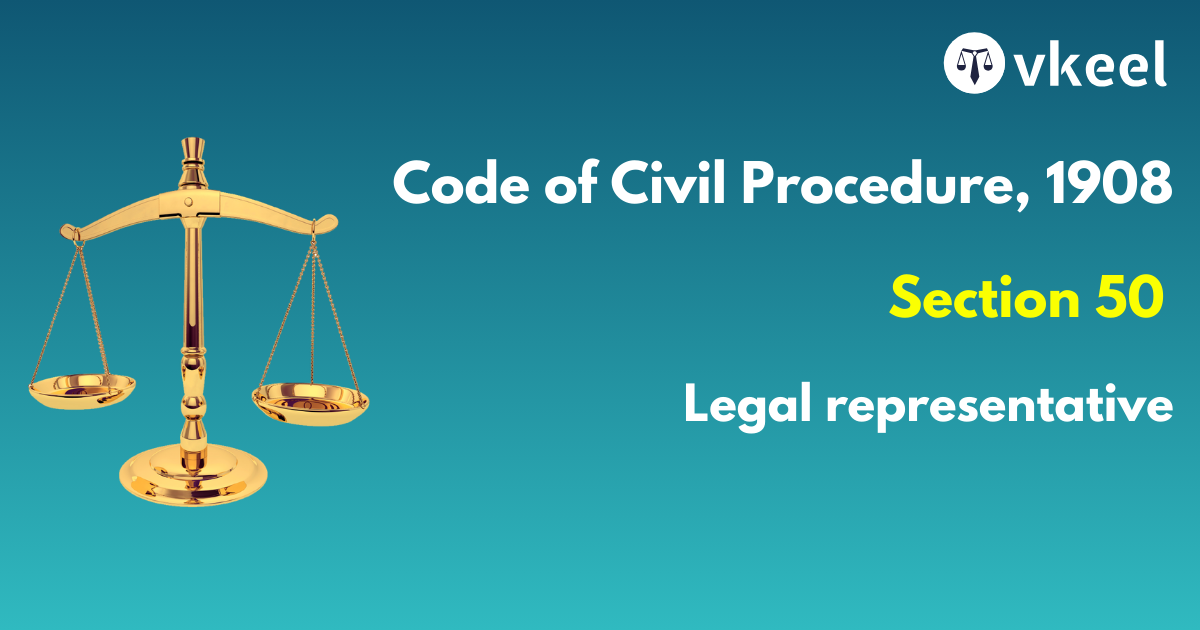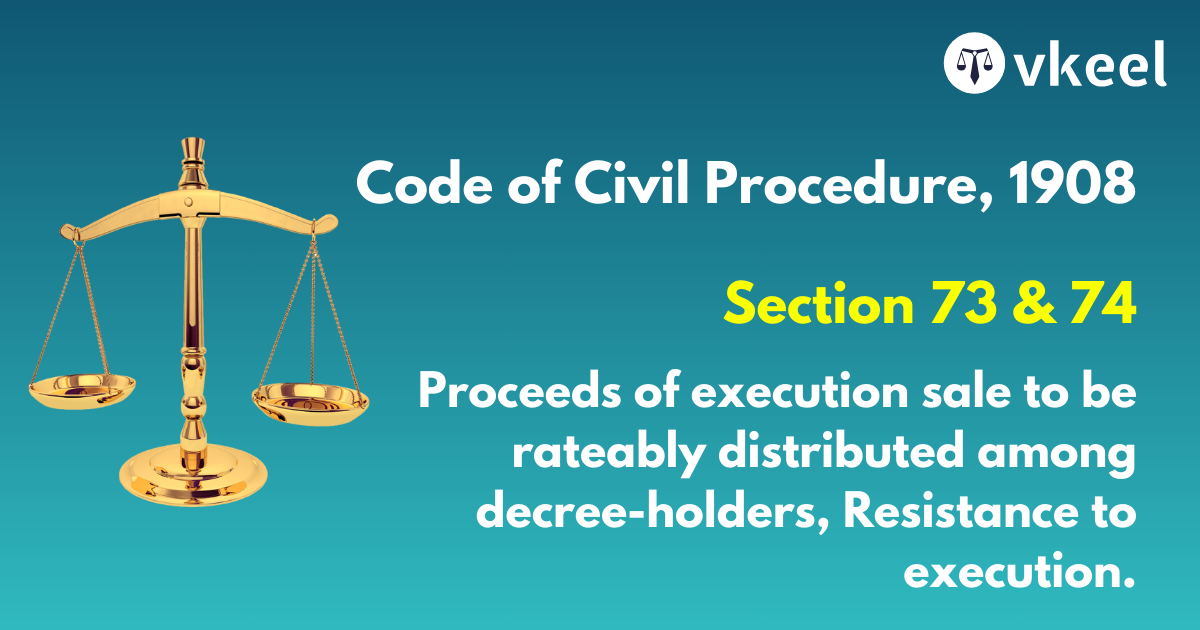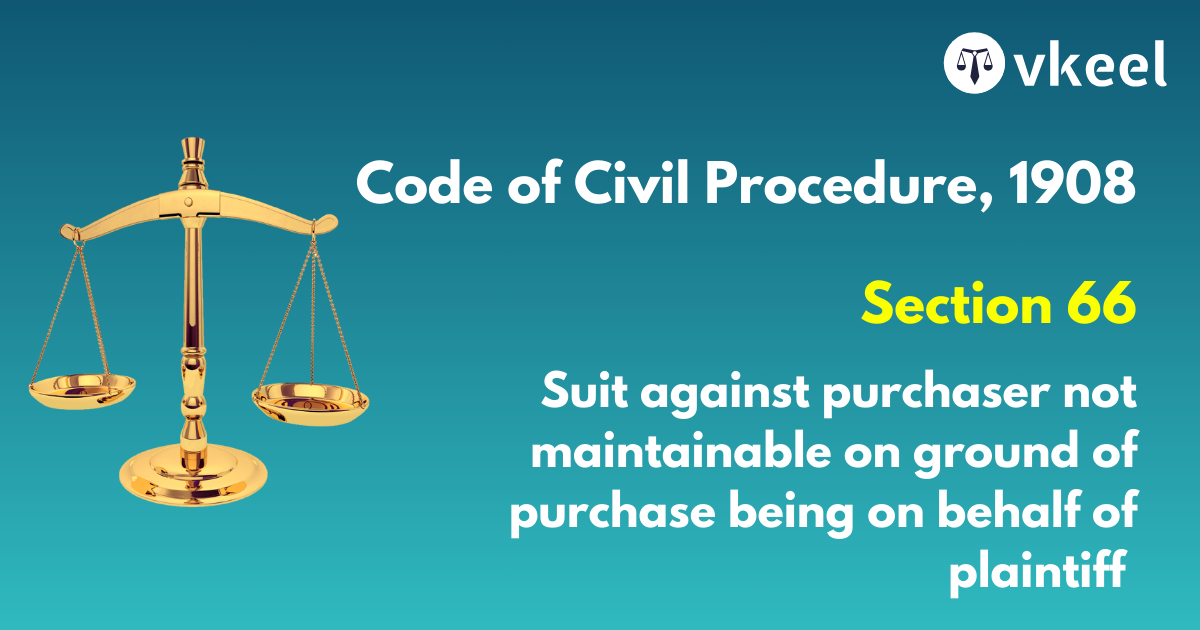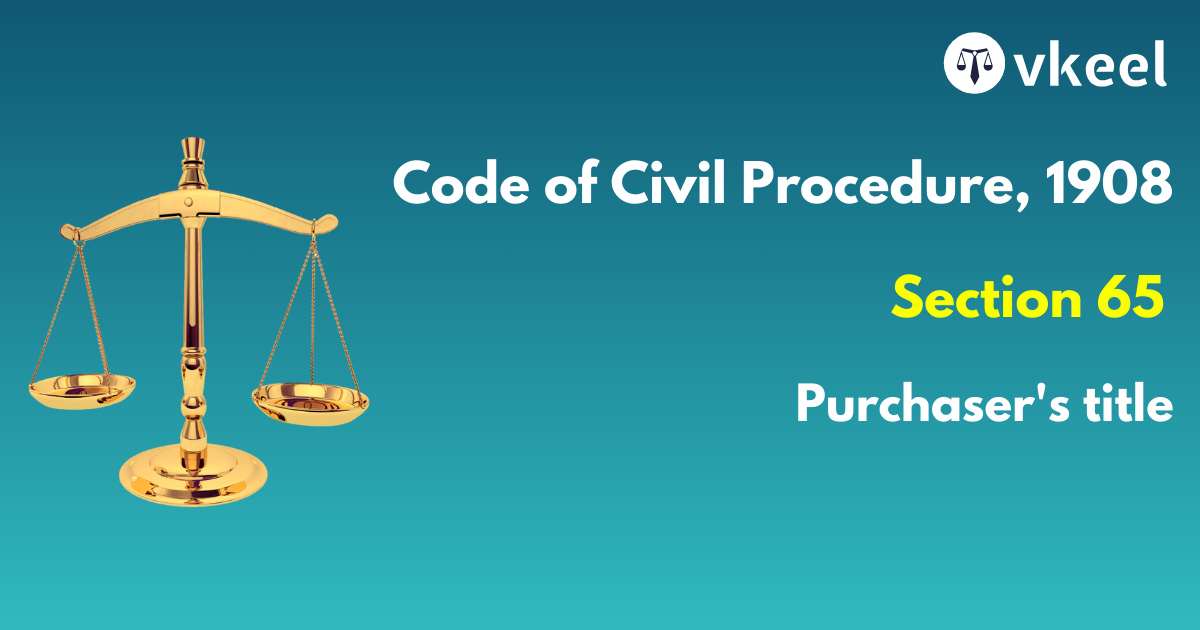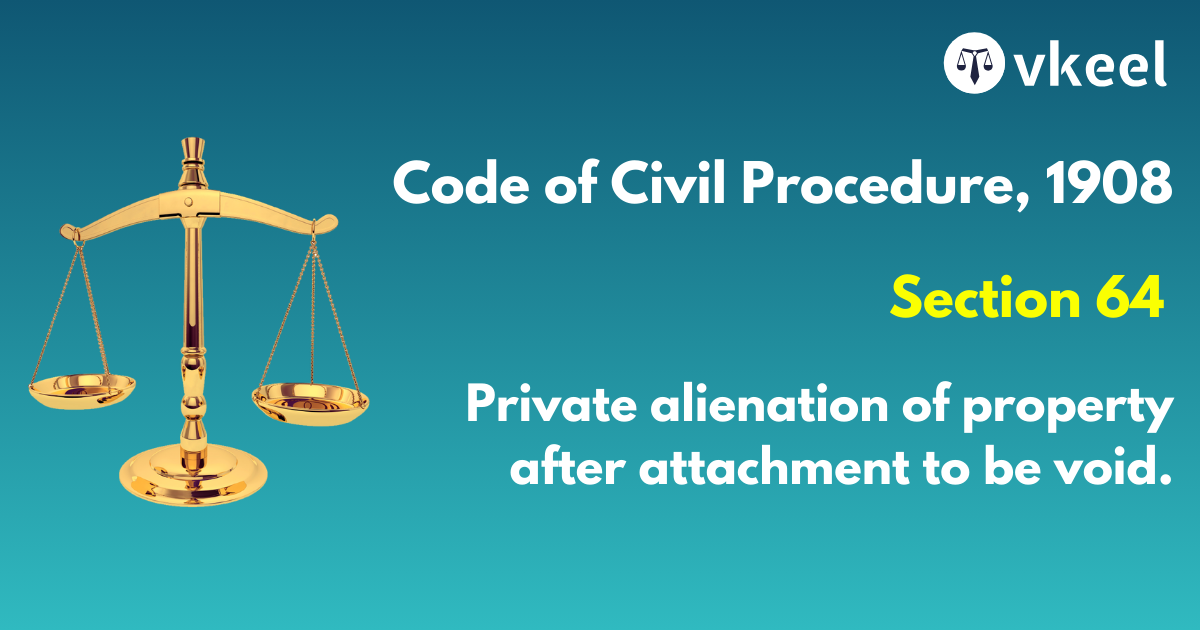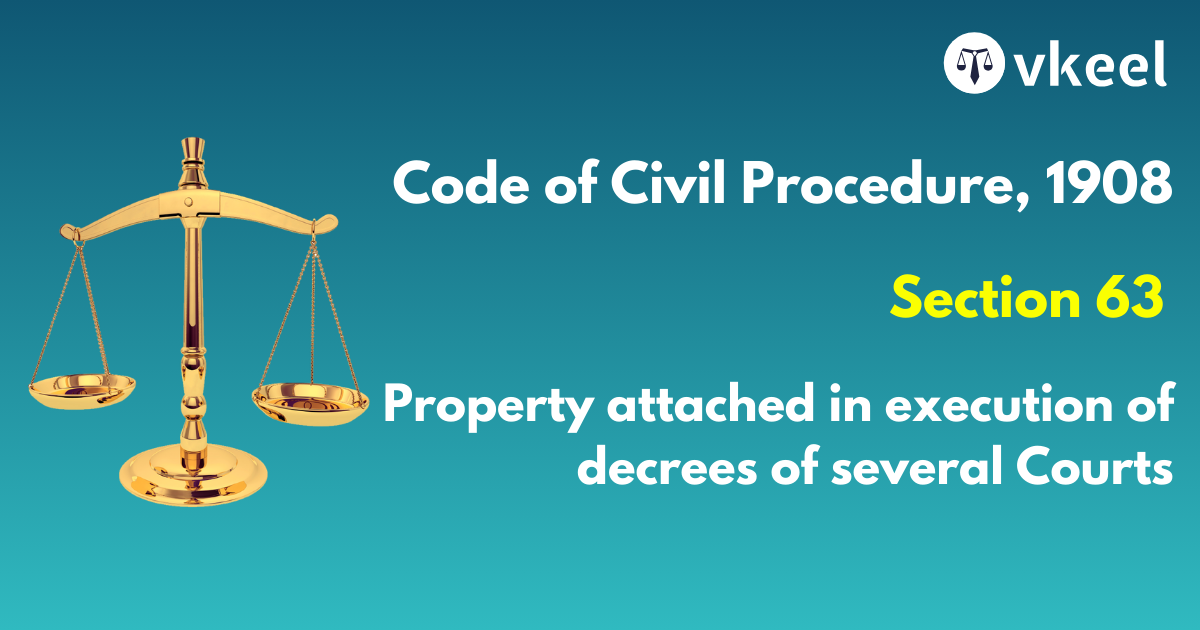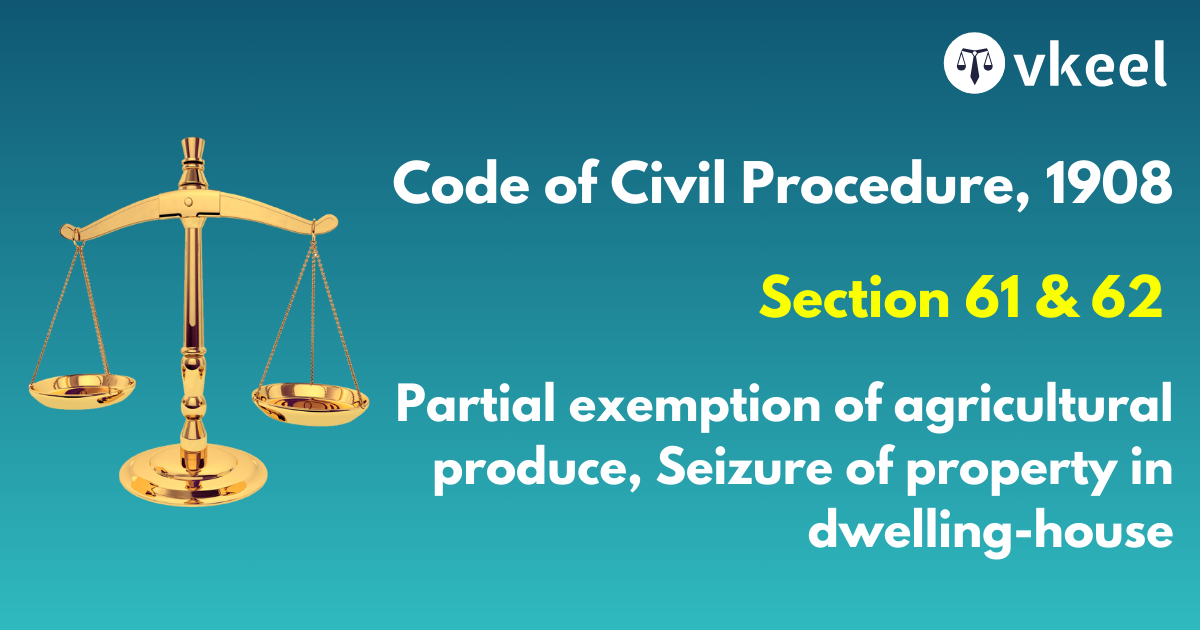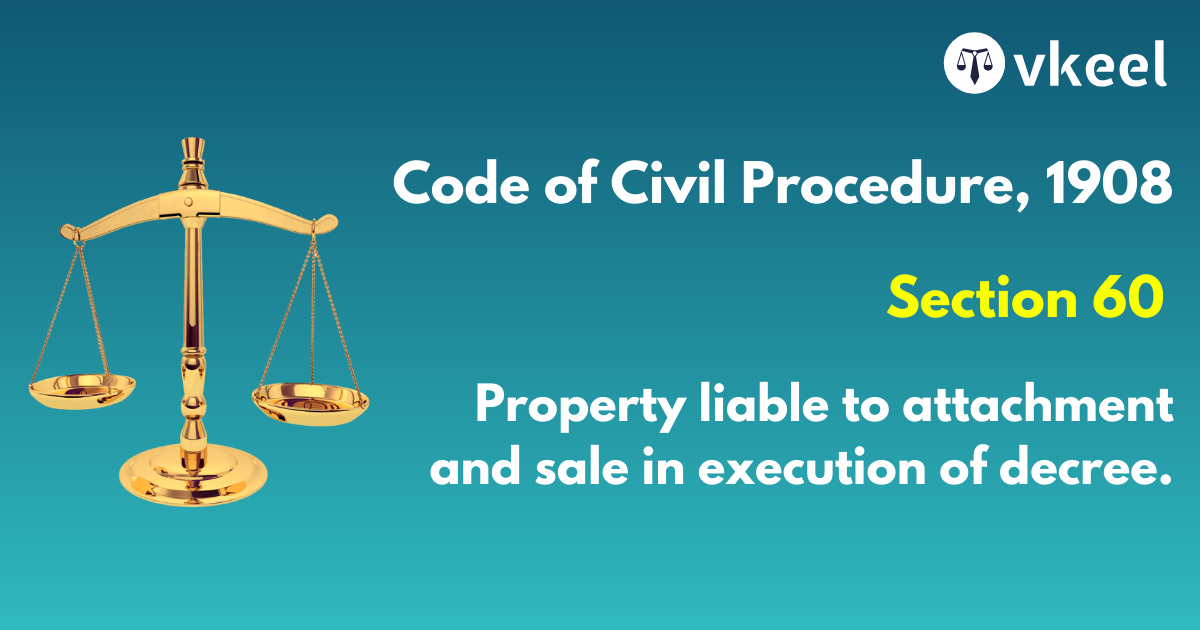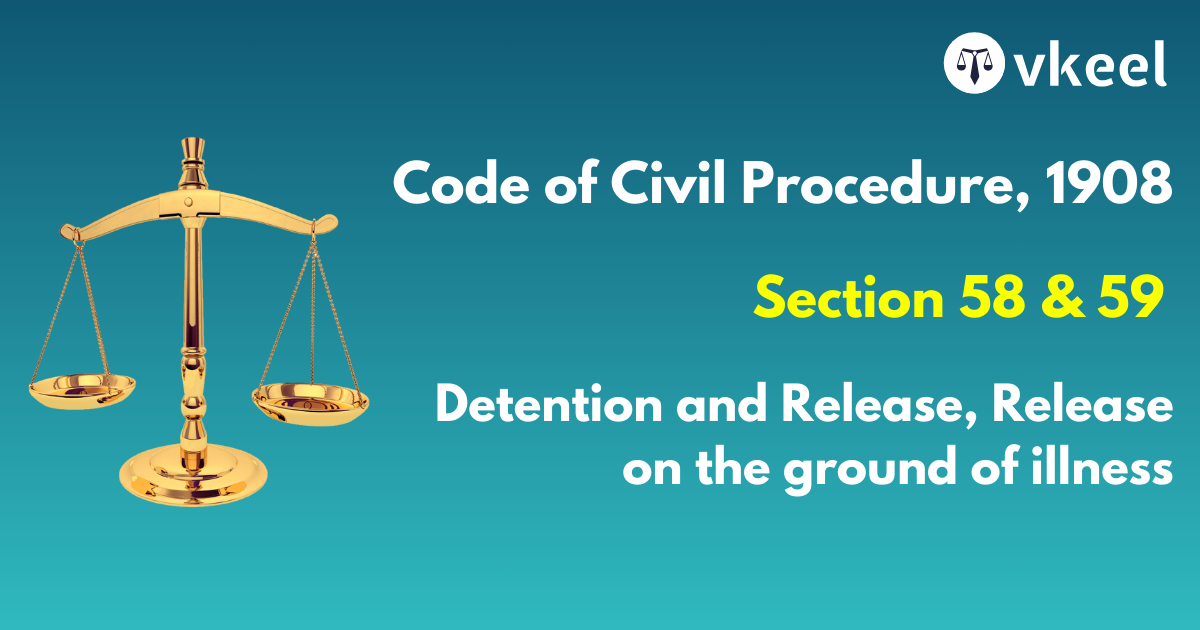Section 50 of the Code of Civil Procedure,1908
By Joy Puri
Introduction
The Section 50 of the Code of Civil Procedure, 1908 enumerates regarding the role of responsibility and accountability.
By its very verbiage, it expresses that in the scenario wherein the judgement debtor dies, the valid legal representative of the respective person acts as a crucial tool for the execution of the decree.
The execution of the said decree, albeit the execution is accompanied by valid and reasonable conditions. The legal representative of the judgement debtor is liable only to the extent to which he has received the property of the deceased.
Section 50 of the Code of Civil Procedure, 1908
Legal representative-
(1) Where a judgment-debtor dies before the decree has been fully satisfied, the holder of the decree may apply to the Court which passed it to execute the same against the legal representative of the deceased.
(2) Where the decree is executed against such legal representative, he shall be liable only to the extent of the property of the deceased which has come to his hands and has not been duly disposed of; and, for the purpose of ascertaining such liability, the Court executing the decree may, of its own motion or on the application of the decree-holder, compel such legal representative to produce such accounts as it thinks fit.
Landmark Case Laws
S Vaithiyanathan Vs Lakshmi Ammal, 2001
Section 52 applies where a decree is passed against the legal representative whether as a result of death of defendant during pendency of suit and substitution or the institution of the suit itself against the legal representatives. As made clear by section 50 when a judgment-debtor dies before the decree has been fully satisfied, the decree-holder may apply to the Court which passed the decree to execute the decree against the legal representatives of the deceased. It is a mere formality to bring the names of the legal representatives on the record
Prabhakara Adiga Vs Gowri, 2017
Section 50 is not confined to any particular kind of decree. A decree of injunction can also be executed against the legal representatives of the deceased judgment-debtor. It would be against the public policy to ask the decree-holder to litigate once over again against the legal representatives of the judgment-debtor when the cause and injunction survives.
Shanti Vs Khandubala, 65 Cal WN 171 FB
The question was again fully considered by a Full Bench which held that section 50 embodies the fundamental principle that the legal representatives of a deceased judgment-debtor must be made a party so that the court may acquire jurisdiction to sell the property. A sale of judgment-debtor’s property does not bind his representatives at whatever stage of the proceedings the debtor might have died. It applies to execution of all decrees whether, money, rent, mortgage &c. It makes no difference that the judgment-debtor died after the issue and publication of sale proclamation.
SP Mishra Vs Mohd. Laiquddin Khan, 2019
Executable decree depends on the rights litigated by the parties. When the original decree sought to be enforced is obtained against the predecessor of the respondents, who was party to partnership deed, the partnership itself would stand dissolved statutorily under section 42(c) of the Indian Partnership Act, 1932. When the respondents are not parties to the partnership firm and have not derived any assets and liabilities arising out of the partnership firm the decree obtained by the original plaintiff is not executable against the legal heirs of the deceased judgment debtor.
Sino Sterling Ltd Vs Revathi Ramachandran, 2001
Only where the legal representatives have got the property from the deceased the decree can be executed against them. Where in execution of decree passed against the director of a company, there was no evidence to show that his legal heirs got the property from their deceased father, injunction restraining the legal heirs from transferring the property was refused.
Himangshu Vs Manindra, 1954
Now death of a non-contesting defendant substitution of whose legal representatives has been exempted by Court under new sub-rule 4(4) of O XXII would not also affect the validity of decree and can be executed against legal representatives. Generally speaking a decree in favour of a dead person is not a nullity although a decree against a dead person is a nullity.
Groves Vs Admnr Gen, 22 M 119
The words “fully satisfied” were substituted for the words “fully executed” which occurred in the Code of 1882 as opinions were not agreed as to when could a decree be regarded as “fully executed”. One view was that a decree was not “fully executed” until the actual sale, so that a sale after the death of judgment-debtor after attachment without impleading his legal representatives was void.
Ramachandra Deshpande Vs Laxmana Rao Kulkarni, 2000
A decree of permanent injunction restraining the defendant from obstructing/interfering with plaintiffs use and enjoyment of their right of way through the defendant’s land may be executed against the transferee of the judgment- debtor.
Ram Murti Devi v Ralla Ram Tulsi Ram, 1987
There is no mention in section 50 of the Code regarding legal representative of a decree holder and therefore the legal representative of a decree holder can only be treated to be a transferee of a decree.
Conclusion
The Section 50 of the Code of Civil Procedure therefore helps in protecting and nurturing the interests of both parties by limiting the legal representatives’ responsibility to the extent of the property they inherit from the deceased, preventing undue financial burden on them.
Disclaimer:
The information provided in the article is for general informational purposes only, and is not intended to constitute legal advice or to be relied upon as a substitute for legal advice. Furthermore, any information contained in the article is not guaranteed to be current, complete or accurate. If you require legal advice or representation, you should contact an attorney or law firm directly. We are not responsible for any damages resulting from any reliance on the content of this website.

